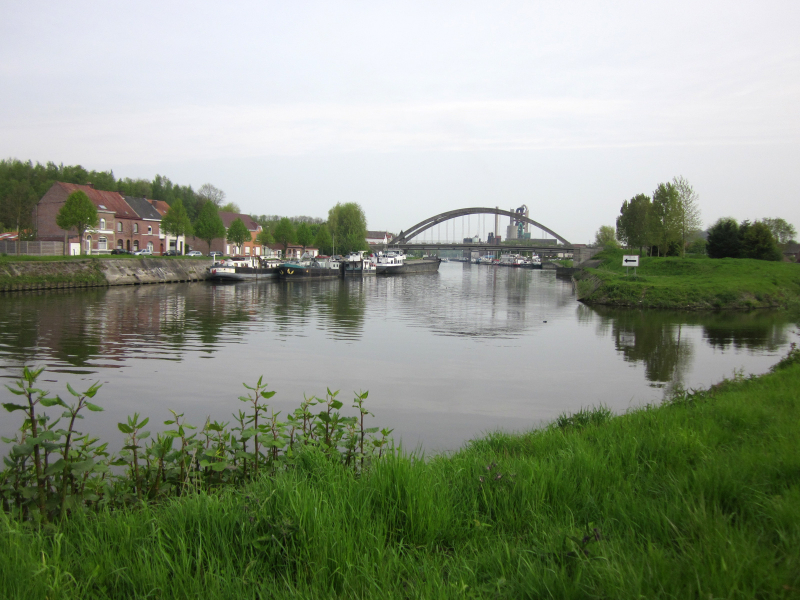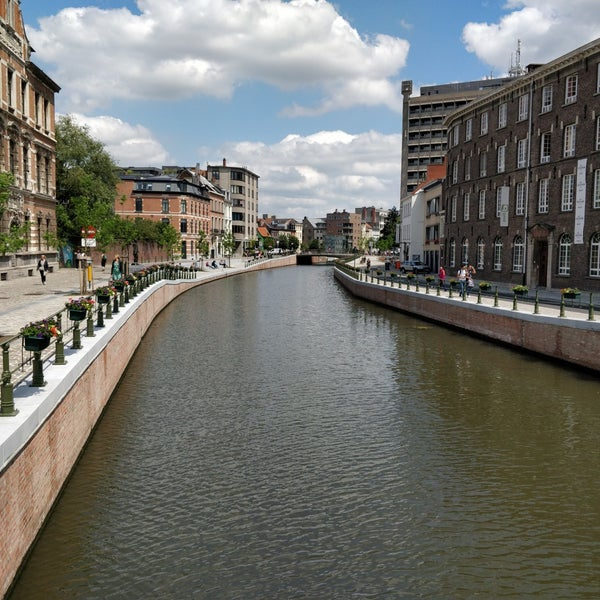Schelde

The Scheldt is a 350-kilometer (220-mile) river that runs through northern France, western Belgium, and the southern Netherlands, eventually emptying into the North Sea. Its name comes from an adjective that means "shallow" in Old English, "shoal" in Modern English, "schol" in Low German, "skol" in West Frisian, and "skäll" in Swedish ("thin").
It drains one of the world's most densely inhabited areas, along with the Lower Rhine and the Meuse rivers. It serves an area that includes the agriculturally vital Flanders Plain, Belgian textile centers, northern French coalfields, and the industrial complex of Lille-Roubaix-Tourcoing as a waterway, with its numerous branch canals and navigable rivers. The Scarpe and Lys on the left (west) bank, and the Dender (or Dendre) and Rupel on the right, are the Schelde's main tributaries. The Eastern and Western Schelde (Ooster- and Westerschelde) were once separated by the islands of Noord, Zuidbeveland, and Walcheren, but the Eastern Schelde was closed off in 1866 by a dike carrying the railway to Vlissingen in the Netherlands.
Length: 350 km (220 mi)









